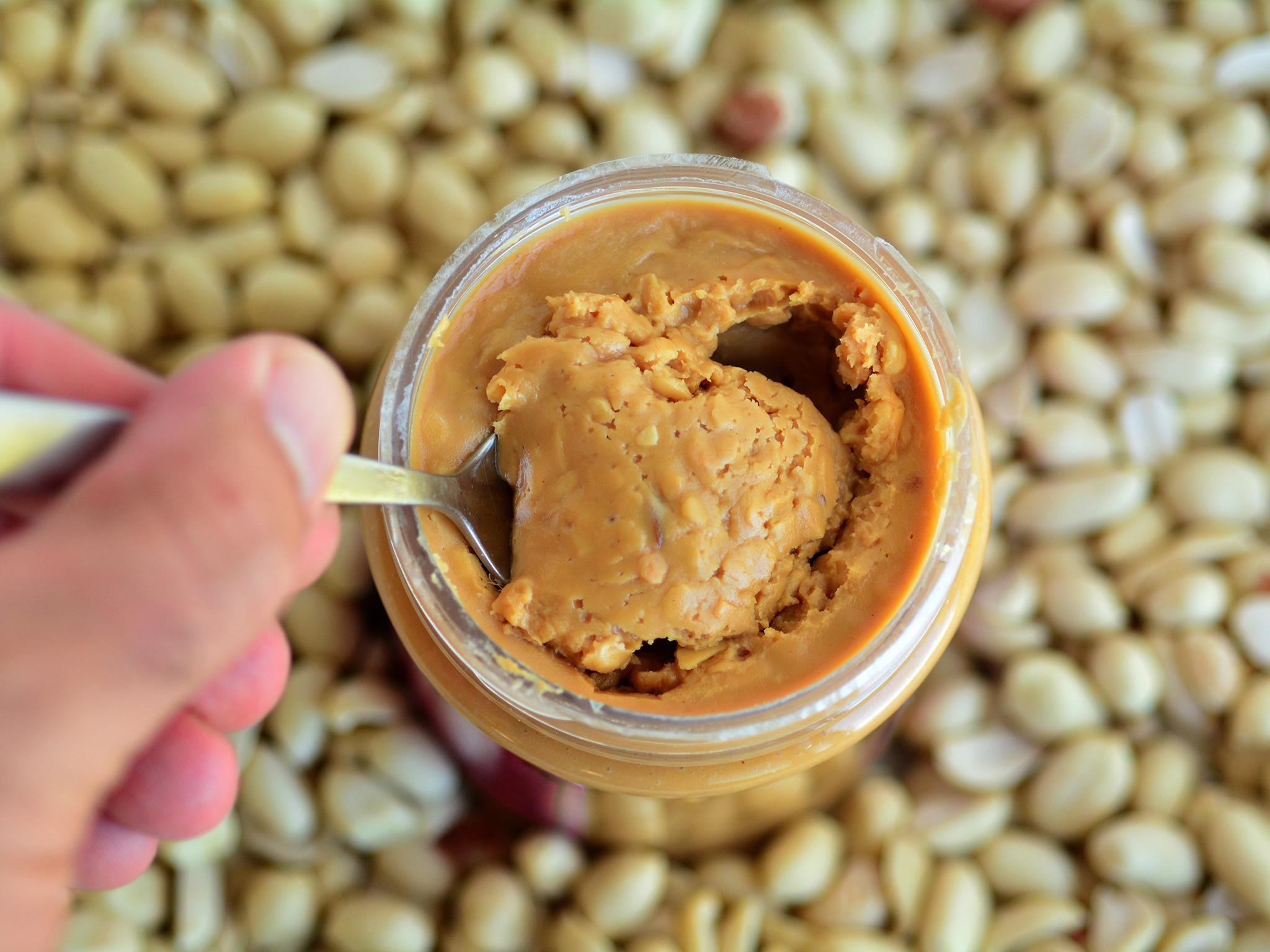Parents advised to give babies peanuts aged four months to prevent allergies
Eating peanut-based foods as baby can cut risk of allergy by 80 per cent, research shows

Your support helps us to tell the story
From reproductive rights to climate change to Big Tech, The Independent is on the ground when the story is developing. Whether it's investigating the financials of Elon Musk's pro-Trump PAC or producing our latest documentary, 'The A Word', which shines a light on the American women fighting for reproductive rights, we know how important it is to parse out the facts from the messaging.
At such a critical moment in US history, we need reporters on the ground. Your donation allows us to keep sending journalists to speak to both sides of the story.
The Independent is trusted by Americans across the entire political spectrum. And unlike many other quality news outlets, we choose not to lock Americans out of our reporting and analysis with paywalls. We believe quality journalism should be available to everyone, paid for by those who can afford it.
Your support makes all the difference.Parents should give their babies peanut-based foods earlier than previously advised to prevent allergies, according to new US guidelines.
The shift in dietary advice recommends exposing babies as young as four months to peanuts, including those at high risk of allergy.
Many parents in the US wait until their child’s first birthday before giving them peanuts – advice which until recently was echoed in the UK.
But these previous guidelines were “based on guesswork”, said allergy expert Professor Anthony Frew.
The latest research has found giving babies peanut-based snacks at an early age can reduce the risk of developing a dangerous nut allergy later in life.
A 2015 trial of more than 600 children prone to developing a peanut allergy found eating peanut products as a baby cut the risk by more than 80 per cent.

And research published in September concluded there was “moderate certainty” early introduction of egg and peanut was associated with lower incidences of allergies to them.
Anthony Fauci, director of the National Institute of Allergies and Disease, called the new guidelines “an important step forward“.
“When you do desensitize them from an early age, you have a very positive effect,” he said.
In the UK, NHS guidelines currently advise against giving peanuts to children in crushed form or as peanut butter before they are six months old if there is no family history of food or other allergies.
But George Du Toit, lead author of the key 2015 study into peanut consumption by babies at risk of nut allergy, said guidelines in the UK and Europe are currently under review.
“It is exciting and rewarding to note the change in the US guidelines which are aimed at the prevention of peanut allergy,” said Dr Du Toit, Consultant in Paediatric Allergy at Guys’ and St Thomas’ Hospital.
“For high risk infants, the guidelines recommend the introduction of peanut-containing foods as early as 4 to 6 months if solid foods have already been tolerated and after determining that it is safe to do.”
Dr Du Toit and his team undertook their research after a tenfold higher rate of peanut allergy was observed among Jewish children in Britain, who aren't fed peanut products during infancy, compared to those in Israel where peanut-based foods are common starting around age seven months.
The prevalence of peanut allergies among children in the US, other Western countries and parts of Asia and Africa has increased rapidly in recent decades.
The number of children affected jumped from 0.4 per cent in 1997 to 1.4 per cent in 2010, according to a study funded by the National Institute of Health.
The new recommendations state that babies at high risk because they have a severe form of eczema or egg allergies should have a check-up before any peanut exposure.
For years, American paediatricians advised avoiding peanuts until age three for children thought to be at risk, a recommendation that was dropped in 2008.
“It's old news, wrong old news, to wait,” said Dr. Scott Sicherer, who represented the American Academy of Paediatrics on the guidelines panel.
Dr Frew said: “It is encouraging to see the US experts endorsing the work done in London and adopting it in their official guidance. Previous UK advice to avoid early introduction of peanuts was based on guesswork.
He said the formal trial had “confirmed that it is not only safe to introduce peanuts early, but it is actually helpful to do this”.
Join our commenting forum
Join thought-provoking conversations, follow other Independent readers and see their replies
Comments